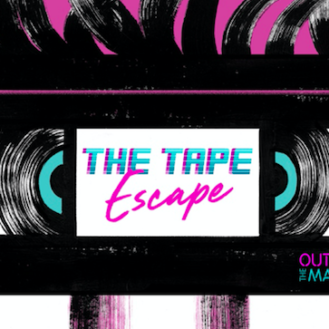With Reel Redemption: The Rise of Christian Cinema, film critic Tyler Smith searches through the history of cinema to enlighten audiences on the relationship religious filmmakers and movie goers have with Hollywood. Smith’s thorough research allows the writer/director to cite specific film eras and different secular representations in order to pitch an unbiased visual essay, while his articulate opinions and personable narration give movie goers a degree of comfort towards the film’s guiding hand.
Reel Redemption, both stylistically and contextually, resembles an educational video; which makes sense considering that Smith’s expertise also comes from an academic background. The film covers a lot of ground, starting from the silent film era and the creation of Hollywood’s valuable “Production Code” and finishing using last year’s drama Unplanned as a brief example. Yet, with a concise runtime, the documentary cruises through the material with a desirable focus dedicated to each chapter. The film is edited incredibly well using snippets of news coverage, but mostly clips from a variety of different movies. It’s a standard style from first glance, but it opens the film up for comparisons as well as examples of contrast in viewership (similar knee-jerk reactions to Martin Scorsese’s The Last Temptation of Christ and Mel Gibson’s The Passion of the Christ, modern audiences favouring relatable stories rather than biblical epics but also reflecting their contentment for safe stories through their moviegoing attendance).
While there may be some minor nitpicks with how some films have been interpreted by Smith (apparently, we disagree on 2004’s brilliant teen comedy Saved!), Reel Redemption sheds light on unknown titles that give Smith more material to make a case on, but also piques the interest of viewers who haven’t heard of these obscure flicks (Blue Like Jazz and Believe Me are films I’ve never heard of and, now, I really want to check them out). I also appreciated the filmmaker’s fair attitude towards recent faith-based fodder distributed by devout independent labels like Sherwood Pictures, PureFlix, and other faith-based affiliates connected to larger movie studios. He acknowledges the glaring issues naysayers pick at, but also intelligently dissects what makes these movies as crowd-pleasing as they are.
As an unreligious film critic who finds devout content interesting and occasionally surprising, I found Reel Redemption to be a worthwhile lesson.
**********
Do You Tweet? Follow These Tweeple:
Addison Wylie: @AddisonWylie





Be the first to comment